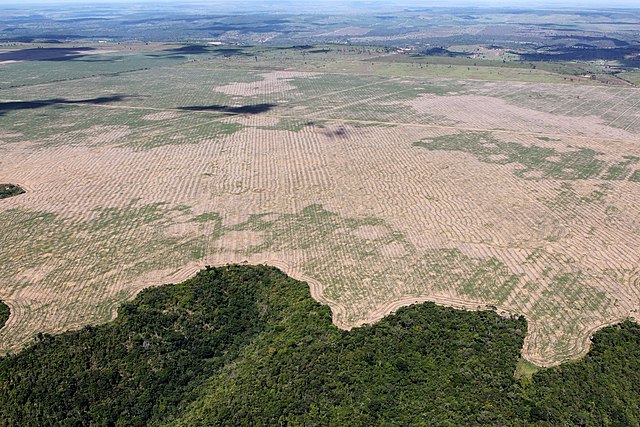 Did you know that more than one million plant and animal species are at risk of extinction from human activity?
Did you know that more than one million plant and animal species are at risk of extinction from human activity?
This is according to a report released yesterday by the IPBES -- an intergovernmental platform on biodiversity.
The report states that since 1970, there has been a growing demand for food, energy, and raw materials. With our Earth's population at 7 billion and rising, the impact could become hard to reverse as we are not giving nature time to regenerate itself.
But all is not lost. The report also informs us about ways we can as individuals, communities, and governments take action.
Our Declining Species
Many species of animals and plants have become extinct over the past few centuries. Even when species do not become extinct, their populations have been declining, which leads to a lack of genetic variation and diversity. Read our earlier article here on why it is important to preserve biodiversity.
 The impact is evident by looking at some recent examples. A female Yangtze giant softshell turtle died recently in China. She was one of four known turtles of her species, and perhaps the last female. Scientists say the species suffered from hunting, overfishing and destruction of their habitat.
The impact is evident by looking at some recent examples. A female Yangtze giant softshell turtle died recently in China. She was one of four known turtles of her species, and perhaps the last female. Scientists say the species suffered from hunting, overfishing and destruction of their habitat.
The second-largest colony of emperor penguins in Halley Bay, Antartica, collapsed in 2016 due to the influence of the strongest El Nino in 60 years. Emperor penguins are awkward on land and cannot climb icy cliffs, leaving them vulnerable to the heavy winds and low levels of sea ice. Scientists estimate that about 15,000 to 25,000 eggs or chicks were lost in 2016, and recent satellite images show that the colony has not recovered.
Brazil lost 13,471 square kilometers or 5,201 square miles of rainforest in 2018, primarily due to clear cutting (removal of every tree) for agriculture. This represents an area about the size of Connecticut.
Our Impact On Nature
 The report identified five ways we are threatening our terrestrial, freshwater, and marine habitats --
The report identified five ways we are threatening our terrestrial, freshwater, and marine habitats --
- Changes in land and sea use as humans encroach into areas that were previously forested. We cut down trees, fill in wetlands, and dredge rivers, and split up habitats by building roads, houses, and dams.
- Killing species through uncontrolled hunting and fishing for consumption, poaching for animal parts like ivory, and simply for the sake of sport.
- Climate change and our use of fossil fuels, such as gas and coal, as well as our high meat consumption, contribute to global warming. This impacts species like polar bears in the Arctic and marine animals that are starved for oxygen in our oceans.
- Pollution in our rivers, oceans, and land.
- Spread of non-native species, as we grow the same crops throughout the world instead of local varieties, and introduce animals into places where they did not previously exist.
According to the report's authors, protecting biodiversity is important for protecting mankind as we are part of the system. Ignoring the issue can impact our economy, culture, food security, quality of life and threaten peace and security.
Source: IPBES, NYTimes, Reuters, BBC, Vox, UN.org










